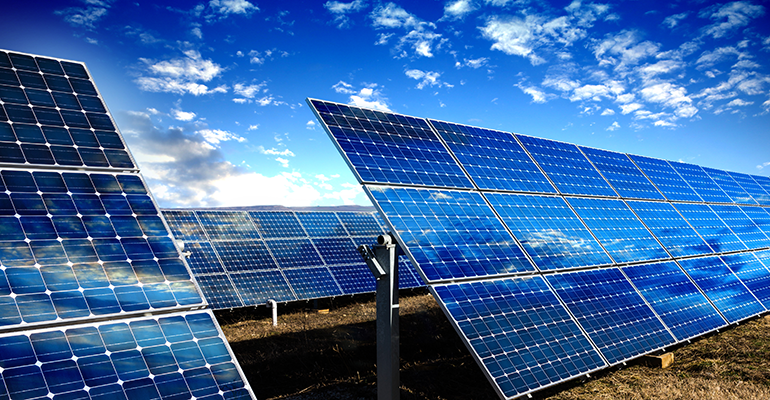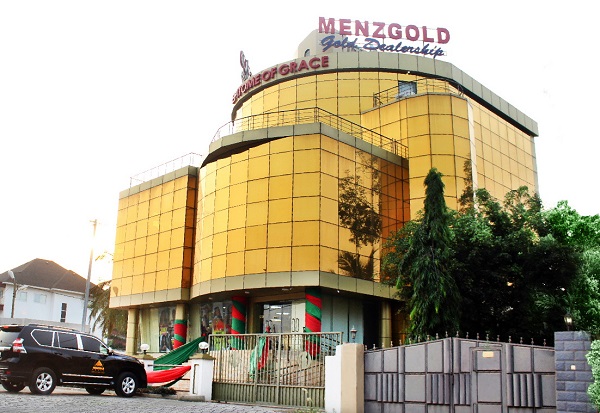During a panel session on Tuesday, September 25, 2018 on the potential of renewable energy to meet Africa`s energy supply, speaker after speaker posited that Ghana and Africa as a whole ought to give considerable attention to renewal energy sources. The moderator of the panel discussion, Mr. Kofi Bentil, senior vice president of IMANI Center for Policy and Education spoke extensively about the need for Ghana to focus on harnessing its solar energy potentials for development since in his view solar energy is much cheaper than some other sources of energy such as hydro. Mr. Bentil also noted that historically, hydro and fossil fuel production have done a lot more damage to communities. He intimated that not only is solar energy financially cost effective but that it is also environmentally friendly.
An energy consultant during the panel discussions advocated for the need for individual households, educational institutions and tailoring saloons among others to consider harnessing solar energy for their personal use. He further stated that solar panels could be fitted on roof tops and that perhaps there should be a deliberate attempt by some to roof their buildings in such a way as to ensure that solar panels can be well fitted on them.
In his presentation, Mr. Bentil also noted that “energy availability and its use are both an indicator and an enabler of development.” He further stated that though Africa is naturally energy rich, the continent is poor when it comes to energy production, and that a country as small as Belgium with a population of approximately 11 million produces more energy than the whole of Africa.
The seminar on energy was jointly organized by IMANI and one of Morocco`s foremost think tanks, OCP Policy Center and themed: “Energy Strategies in Africa: Identifying the Challenges and Addressing the Priorities.”
This event held at Coconut Grove Regency Hotel played host to many industry players and was an engaging discussion. Three panel discussions were held, the first exploring the potential of renewable energy to meet Africa’s energy supply.
FINANCING RENEWABLE ENERGY SOURCES
The second panel discussion was on financing energy access and infrastructure in Africa; the opportunities and challenges. The discussion was on the backdrop that financing is a major challenge in developing renewable energy sources in Ghana and Africa as a whole. The panel discussion that climaxed the seminar focused on the role of oil and gas in facilitating energy access and exploring the benefits of greater regional integration of the energy sector.
Panel members included Rim Berahab, Economist with OCP Policy Center; Francis Perrin, Senior Fellow at OCP Policy Center; Benjamin Boakye, Executive Director of Africa Center for Energy Policy (ACEP); Ishmael Edjekumhene, Executive Director of the Kumasi Institute of Technology, Energy and Environment; Ishmael Ackah, Technical Advisor on Energy at the Ministry of Planning; Paa Kwasi Anamua Sakyi, Executive Director of the Institute of Energy Security and several others.
Related: How much we pay for not using Solar Energy
Why solar?
As at 2017, the total installed capacity of Solar power in Ghana stood around 120MW; This indicates that approximately 0.0005% of the nation`s solar power potential had been tapped, obviously way below our solar power capabilities. Ghana`s energy mix is dominated by far by thermal and hydroelectric power plants. The energy sector is however bedeviled with a myriad of challenges ranging from non-availability and high cost of gas to faulty delivery and planning systems.
This perhaps is where the need for a lot more investment into solar energy and other renewable energy sources become the more apparent, even so when vast potential remains dormant. Credible policies ought to be developed which are tailored towards encouraging investments in renewable energy sources such as wind and solar power.
Yet another reason why Ghana ought to invest in solar energy is the fact that the geographical location of Ghana which situates it around the equatorial sun-belt, strategically positions Ghana to harness the abundant solar energy resources.
Credible data reveals that Wa, the capital of the Upper West region, has the highest level of solar irradiation (5.524 KWh/m2-day) across the country. May is considered the month with the highest solar irradiation (5.897 KWh/m2-day), with August recording the lowest measurement (4.937kWh/m2-day) in Wa. Perhaps an investment into solar energy by the government in that part of the country will yield substantial dividends and help reduce the over reliance on hydro and thermal.
Data available shows that Ghana has an unreserved forest land of area of 5,000 sq km, with an average radiation of 5 kWh/m2-day. It is estimated that developing 1MW Grid connected Solar PV power plant on every 4-acre land will unleash Ghana`s potential to develop over 240,000MW or 240GW of Solar power assuming 80% (4,000 sq km – 900,000 Acres) of this land surface is used to harness solar power for the country. What then are we waiting for?
![]()






